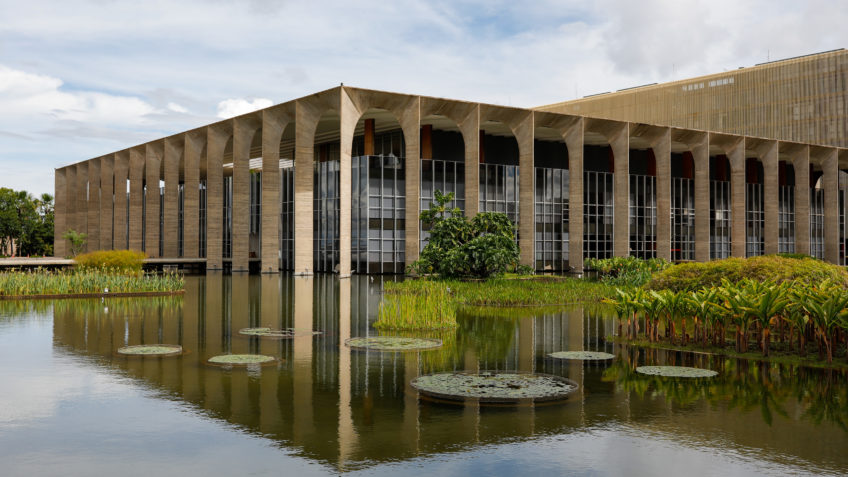
Ministry cut 90 vacancies abroad; balance of the 1st semester between those who return to the capital and those who move to other countries will be positive
Itamaraty concluded the diplomat removal plan for the 1st half of 2024 with a positive balance of professionals who will return to Brasília. The result is the result of a cut of 90 positions abroad, mainly in Europe and North America. There were also changes to internal rules to encourage the filling of unoccupied positions in countries with low Brazilian diplomatic representation, especially in Africa.
How the Poder360 showed, the Ministry of Foreign Affairs identified a shortage of personnel at headquarters at a time when the government of President Luiz Inácio Lula da Silva (PT) is preparing to host major international political events.
The assessment was that Brazilian diplomacy worked at the limit of its capacity in 2023. Now, it needed to rebalance the staff in the capital.
In 2024, Brazil will host the G20 meeting (group of the 20 largest economies in the world), with constant meetings throughout the year that will culminate in the summit of heads of Government and State in November, in Rio.
In 2025, the country will also organize the Brics summit (a group initially formed by Brazil, Russia, India, China and South Africa) and COP30, an environmental summit linked to the UN (United Nations) and one of Lula’s main projects in his 3rd term.
According to the Poder360 found, 48 vacancies for secretaries and advisors were cut in Europe, 15 in North America, 16 in South America, 9 in Asia and 2 in Africa. Of the total, 49 posts were considered class A, 18 class B, 18 class C and 9 class D.
According to law 11,140 of 2006, which regulates the foreign service, the letters differ by type of country or mission according to representativeness, specific living conditions at headquarters and convenience of administration. In other words, the positions considered most relevant are classified as A and the least as D.
For example, the embassies in Washington, USA, and Buenos Aires, Argentina, are in group A, while the embassy in Beijing, China, is in C. Posts in African and Asean countries (group of 10 countries Southeast Asia) are classified as C or D.
Naturally, A positions end up being the ones most sought after by diplomats. The group, however, was the hardest hit. The cut represented a reduction of 12.5% of the total of 390 vacancies currently.
For Itamaraty, the compression of the category should encourage the search for other positions where there is a greater need for the allocation of professionals.
Of the total, 72 diplomats are expected to arrive in Brasília from June to August. The rest will return when their missions expire. Another 29 are expected to leave the capital and head abroad in the same period. Therefore, the balance will be 43 more professionals in Brasília after the completion of the removal plan. According to members of the ministry, the positive balance is rare.
In addition to cutting positions abroad, the rules for moving between positions have also become stricter. According to the law, diplomats can spend up to 6 years outside the country, depending on the type of class they fall into. The period can be extended for a maximum of another 4 years if the professional migrates to positions C or D. In total, it is possible to work abroad for up to 10 years in a row. At the end of the period, the professional must return to Brazil.
To encourage the occupation of positions C and D, Itamaraty opened 22 exceptional vacancies that met this new standard and 15 diplomats applied for these positions.
Currently, diplomats have more freedom to choose the positions where they want to work, according to the availability of vacancies. This type of autonomy ends up emptying embassies and consulates in countries considered less attractive or relevant. Therefore, to change countries, diplomats will now need to apply for vacancies that will be listed according to the ministry’s needs.
Source: https://www.poder360.com.br/governo/itamaraty-tera-reforco-de-diplomatas-em-brasilia-de-olho-na-cop30/

